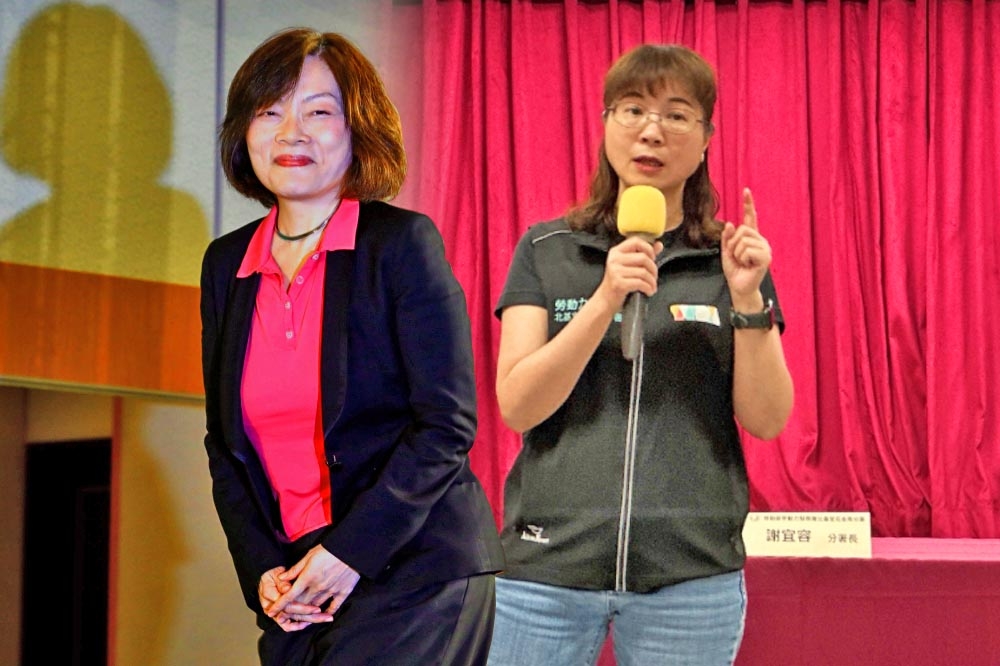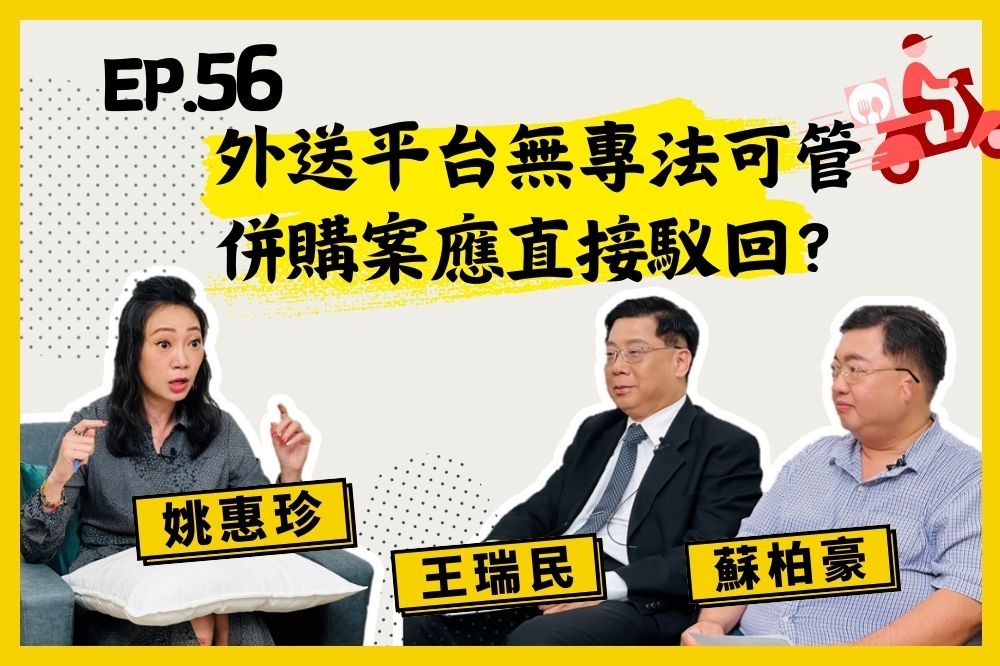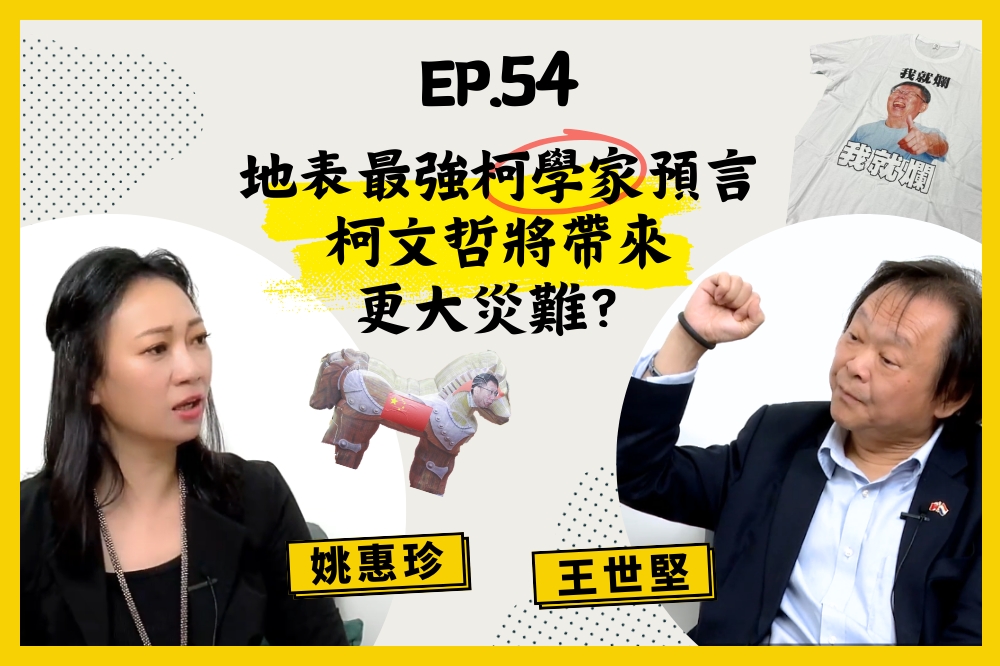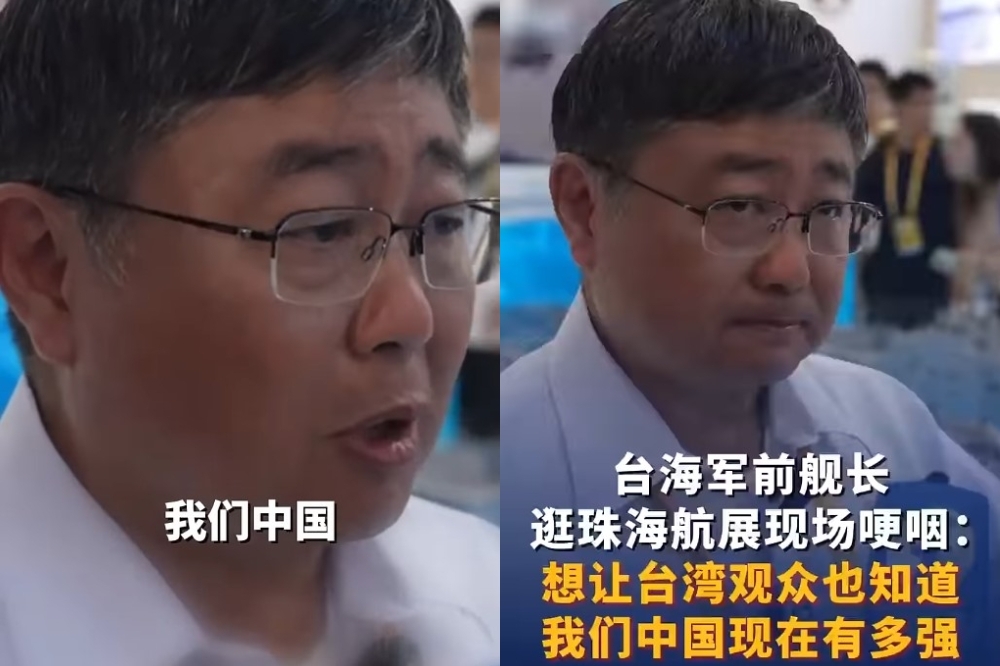上報 Up Media
toggle- 最新消息 謝宜容起碼幹掉賴清德半壁江山 2024-11-22 00:02
- 最新消息 投書:立院惡鬥 只會讓更多科技人企業人不敢投身政壇 2024-11-22 00:00
- 最新消息 勞動部稱謝宜容失聯明天不出面 吳母淚控:霸凌太過分、太惡毒 2024-11-21 22:05
- 最新消息 俄烏戰況恐升級 烏克蘭是否有能力攔截ICBM 2024-11-21 21:50
- 最新消息 明後兩天各地氣溫回升 北部、東北部18到23度濕涼舒爽 2024-11-21 21:45
- 最新消息 劍橋詞典2024年度代表字出爐 「manifest」反映人們追求身心健康趨勢 2024-11-21 21:43
- 最新消息 為了9萬元勒斃馬國女大生 陳柏諺一審判賠父母逾638萬元 2024-11-21 21:32
- 最新消息 觸犯戰爭罪、違反人道法 ICC對納坦雅胡、哈瑪斯領導層發出逮捕令 2024-11-21 20:47
- 最新消息 【世棒四強賽】「CT AMAZE」自費飛東京應援 推掉台灣活動損失近10萬 2024-11-21 20:45
- 最新消息 蔡英文抵達加拿大 感謝台灣鄉親熱情接機 2024-11-21 20:37
【訪談全文】《經濟學人》特刊 蔡英文誓言要讓台灣「再次變猛虎」

《經濟學人》刊出蔡英文總統以「讓台灣再度變成猛虎」為題的專文。圖為日前蔡英文與珍古德對談活動現場。(攝影:李隆揆)
英國《經濟學人》(The Economist)雜誌發表最新的《2017全球大趨勢》(TheWorld in 2017)。其中收錄一篇蔡英文總統以「讓台灣再度變成猛虎」為題的專文,文中指出,2017年將加速各項改革,盼重回亞洲四小龍的光景。
根據《中央社》報導,《2017全球大趨勢》亞洲部分放入重要人士所撰的專文,其中蔡英文的專文名為「讓台灣再度變成猛虎」(Turning Taiwan into a tiger again)。
在專文中,蔡英文指出,她發現台灣領導人正身處巨大的政經挑戰,2016年台灣民眾將國家託付給民進黨,並交付改革與復甦2大重任,「我們希望讓台灣再次成為亞洲猛虎」。
而她2017年的計畫,是讓台灣重新成為領航者角色,在以新發展模式復甦經濟的同時,也要確保基本的社會安全,並同時致力改革政治機構,她預期各項改革與復甦將會在2017年加速。
她也提到政府將透過公共與民間投資,到2024年提供20萬戶社會住宅,並結合政府、民間與全球資源,培育包括物聯網、生技、智慧機械、綠能及國防等未來產業;政府也鬆綁對外籍專業人士的管制,以便台灣成為區域的新興產業人才中心,以及致力推動新南向政策。
此外,蔡英文表示,所有的改革有賴穩定的區域環境,政府將尋求與區域內各方對話,包括中國大陸,她的兩岸政策是根據既有憲政架構,建立一貫、可預期、可持續的兩岸關係。
《經濟學人》總編輯貝德斯(Zanny Minton Beddoes)就在特刊裡「川普星球」(Planet Trump)一文中評論並警告,隨著川普成為美國第45位總統,2017年象徵一個新的、更黯淡全球治理的開端。
應英國《經濟學人》雜誌之邀,總統以「台灣將再起」(Turning Taiwan into a tiger again)為題,於該雜誌《The World in 2017》專刊發表專文,向國際社會傳達台灣對2017年的展望。
英國《經濟學人》(The Economist)雜誌自1980年代起,每年年終發行年度專刊,內容主要收集國際政界、企業、科學及藝術等各界具聲望之重量級人士,以及該雜誌或其他媒體之記者,針對來年各領域發展或趨勢所提出的觀察預測。該專刊在全球90個國家發行、被翻譯為30多種語文,英文版全球發行量超過200萬份。
蔡英文訪談全文如下:
台灣將再起
1996年,台灣舉行有史以來第一次總統直選,蛻變成真正的民主國家。當時的台灣洋溢樂觀和變革的氣氛,經濟強勁,失業率低,中產階級所得提升。身為貿易談判代表的我,親身見證了台灣克服國內外重重障礙,加入世界貿易組織的過程。
台灣曾是黑暗汪洋的一盞明燈。但是最近以來,在許多台灣人眼中,這盞明燈卻在不確定的全球環境裡漸漸黯淡。而我,在台灣面臨經濟與政治嚴峻挑戰的此時此刻,成為台灣的領導人。趨緩的經濟成長,擴大的不平等,以及新的安全威脅在在考驗全球各地的經濟與政治體制。台灣也和其他國家一樣,未來的發展將取決於如何因應當前的艱困挑戰。
2016年,台灣人民賦我們民主進步黨以改革與再造的雙重任務。我們要做的,是讓台灣再次展翅。
展望2017年,我們將重新強化台灣的領航角色,維護基本社會安全網,以全新的發展模式振興經濟。此外,我們也將同步改革政治體制,務使經濟與社會的轉型,能和政府的透明度與民主文化的成熟發展齊頭並進。
台灣的社會安全網岌岌可危。我們推動的年金改革是以追求永續,強化對弱勢的支持為目標。台灣各業別的年金方案各不相同,制度的不公激化社會分歧。制度的變革絕非易事,但民進黨擁有充份的民意授權可以致力推動改革。
隨著房價飛漲,台灣人民用於住屋支出的所得比例急遽上升。政府將透過公私協力的投資計畫,在2024年以前提供20萬戶民眾負擔得起的社會住宅,並為老年人提供新的社區長照中心。我們的整體目標是重新分配公共資源,建立更為公平的社會福利制度。
2017年的經濟計畫將聚焦於產業升級,突破經濟停滯。我們以產業創新、創造就業為基礎,秉持經濟發展為全民共享而非獨厚少數人的理念,打造更具包容性的經濟模式。同時也將善加利用台灣既有的產業優勢,包括成熟的產業聚落、優越的研發能力以及靈活的中小企業等。
政府將透過精準的投資策略,整合公共、民間及全球的資源,培育物聯網、生物科技、智慧機械、綠能和國防等具有未來性的產業。這些產業是我們現有產業能力的自然延伸,必能讓台灣在未來的全球經濟體系更具競爭力。
目前我們正致力優化資本市場,並調整金融政策,吸引更多以創新為導向的外資;同時也對創業者與科技新創公司提供更多支持,改變人力資本的運用方式。我們延攬現年35歲的前「黑客」擔任政務委員,期使政府與新創企業零距離。而放寬外國專業人士來台就業的相關法規,也將使台灣成為新興產業的區域人才中心。
促進開放
為配合經濟轉型,政府責無旁貸,必須為產品與服務開拓新市場。我們透過「新南向政策」,促進與東協、南亞、澳洲和紐西蘭的合作,並把重點放在教育、農業、文化、觀光,以及貿易投資之外的其他民間交流。
台灣已經為加入多邊貿易體系作好準備,並採取具體的作為,包括官僚作業的減少、智慧財產權的保護、投資管理程序的簡化等,我們將尋求在適當時機加入《跨太平洋夥伴協定》。而與重要貿易夥伴洽簽雙邊貿易協定的工作也正逐步進行。
這一切都有賴於區域環境的穩定。我們將尋求與利害相關的各方,包括中國大陸,展開對話,為亞太地區建立和平繁榮架構。我的兩岸政策是在既有的憲政框架下,建立一致性、可預測且可持續的兩岸關係。
外界對執政團隊的評價,最終將取決於我們有沒有能力改革並振興這個國家。而要達成這個目標,需要我們在充滿不確定的國際環境中,跨越世代、階級與族群的歧異,讓各種不同的利益取得平衡。
然而我們充滿信心,相信台灣得之不易的民主足以承擔此一重任。台灣的改革與再造將在2017年加快步調,向前邁進。
Turning Taiwan into a tiger again
In 1996 Taiwan held its first-ever presidential election, marking our transition into a full democracy. There was an atmosphere of optimism and change across the country. The economy was strong, with low unemployment and rising middle-class incomes. As a trade negotiator, I saw first-hand how Taiwan was overcoming hurdles – both domestic and international – to joining the World Trade Organisation.
Taiwan was a bright light in a sea of darkness. But lately, for many Taiwanese, that bright light has dimmed amid an uncertain global environment. I now find myself Taiwan’s leader at a time of vast economic and political challenges. Slow growth, rising inequality and new security threats are testing economic and political institutions around the world. Taiwan, no less than other countries, will be defined by how it responds to these difficulties.
In 2016 the people of Taiwan entrusted my Democratic Progressive Party (DPP) with the twin tasks of reform and renewal. We want to make Taiwan an Asian tiger once again.
My plan for 2017 is for Taiwan to renew its role as a pioneer, preserving our basic social safety net while revitalising the economy with a new development model. We will simultaneously work to reform political institutions, ensuring that economic and social transformations are combined with transparency and a strong democratic culture.
Taiwan’s social safety net is on the brink of bankruptcy. My pension reform aims to make it sustainable and increase the support for the poorest. Taiwan has different pension programmes for different professions: an unfair practice which fuels social divisions. Changing this system will take some effort, but the DPP has a clear democratic mandate to do so.
The proportion of income spent on housing by Taiwanese people has risen sharply amid a real-estate bubble. My administration will help by providing 200,000 units of affordable social housing by 2024 via a public-private investment plan. Our ageing population will also receive new community centres. Our overall goal is to redistribute public resources for a fairer welfare system.
My economic plan for 2017 focuses on upgrading industries and overcoming stagnation. We are laying the groundwork for a more inclusive economic model based on innovation, job creation and the idea that growth should benefit everyone, not just the few. But we will draw on Taiwan’s existing strengths: a mature industrial cluster, R&D capabilities and flexible smaller businesses.
Through smart investment, the government is integrating public, private and global resources to nurture industries of the future: the “internet of things”, biotechnology, smart machinery, green energy and defense. A natural extension of our current industrial capacities, these sectors will enable Taiwan to compete better in the future global economy.
We are refining our capital market and making financial policy more inviting to innovation-oriented foreign investment. We are also changing how we use human capital by providing greater support to entrepreneurs and tech startups. Our new technology minister, a 35-year-old former hacker, provides a direct line between them and the government. We have also loosened regulations on foreign professionals so that Taiwan can become a regional talent hub for emerging industries
Open for business
To complement this economic transition, the government must take the lead in opening new markets for our products and services. We are stepping up engagement with ASEAN, south Asia, Australia and New Zealand via our “New Southbound Policy”. This focuses on education, agriculture, culture, tourism and other people-to-people interactions beyond trade and investment.
We have sought to demonstrate that Taiwan is ready to join multilateral trade regimes: by reducing red tape, entrenching intellectual- property rights and streamlining the procedures governing investment. We will seek accession to the Trans-Pacific Partnership if and when it becomes available. We are also working towards bilateral agreements with important trading partners.
All of this depends on a stable regional environment. We will seek dialogue with all interested parties, including China, to build a framework for peace and prosperity in the Asia-Pacific region. My cross-strait policy is to establish consistent, predictable and sustainable relations under the existing constitutional framework.
Ultimately, my administration will be judged by our ability to reform and renew this country. This will demand that we deftly balance a multitude of interests across generations, classes and ethnicities, all in an uncertain international environment.
Yet we go forward with confidence, trusting that our hard-won democracy will rise to the task. Taiwan’s reform and renewal will gather pace in 2017.
【上報徵稿】
上報歡迎各界投書,來稿請寄至editor@upmedia.mg,並請附上真實姓名、聯絡方式與職業身份簡介。一起加入Line好友(ID:@upmedia),或點網址https://line.me/ti/p/%40zsq4746x。
熱門影音
熱門新聞
- 【懶人包】勞動部公務員疑遭職場霸凌輕生 事件始末「時間軸、手段、調查結果」一次看懂
- 起底謝宜容!傳身家背景雄厚「善做公關」 先生和綠營高層有交情
- 一元特典!YOASOBI「超現實」小巨蛋演唱會釋出「零星票券」,11/24 採實名制一般販售
- 【世界棒球12強賽】滿足「2條件」台灣確定晉級4強 今晚是關鍵
- 先搶先贏!Ado 五月林口體育館演唱會採實名制入場,11/19 輸入「指定代碼」可優先預購
- 【內幕】T112步槍裝彈器採購案疑專利侵權 以色列向軍備局寄存證信函
- 王一博金雞獎典禮被抓包視線離不開趙麗穎 網揭兩人4年戀情無法曝光背後真相
- 勞動部涉職場霸凌不只謝宜容? 何佩珊:與輕生者中間還有2個主管












